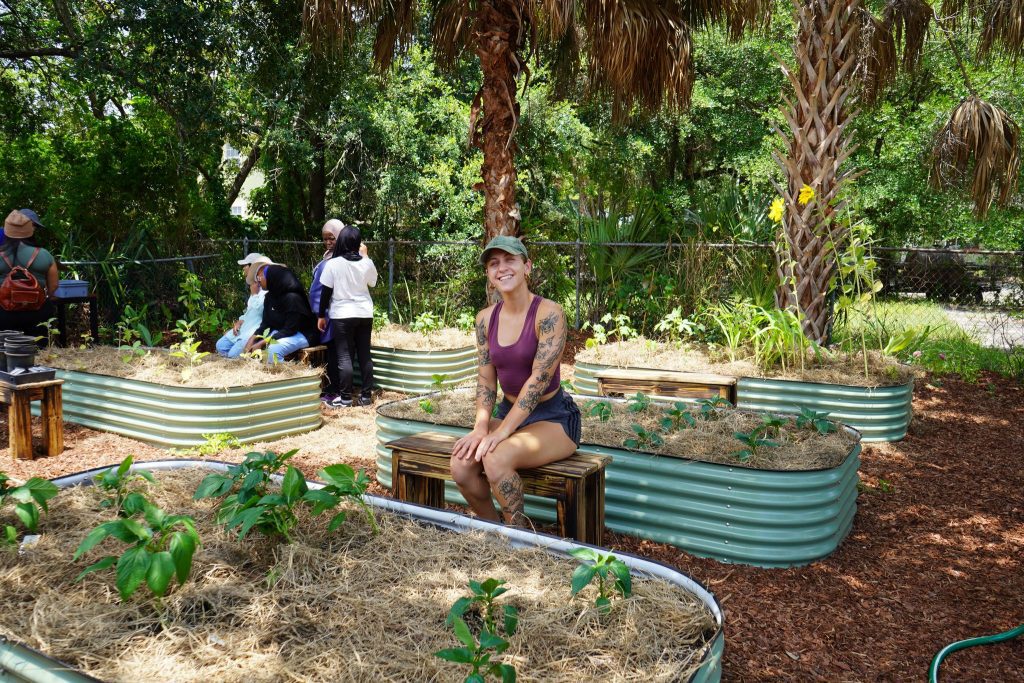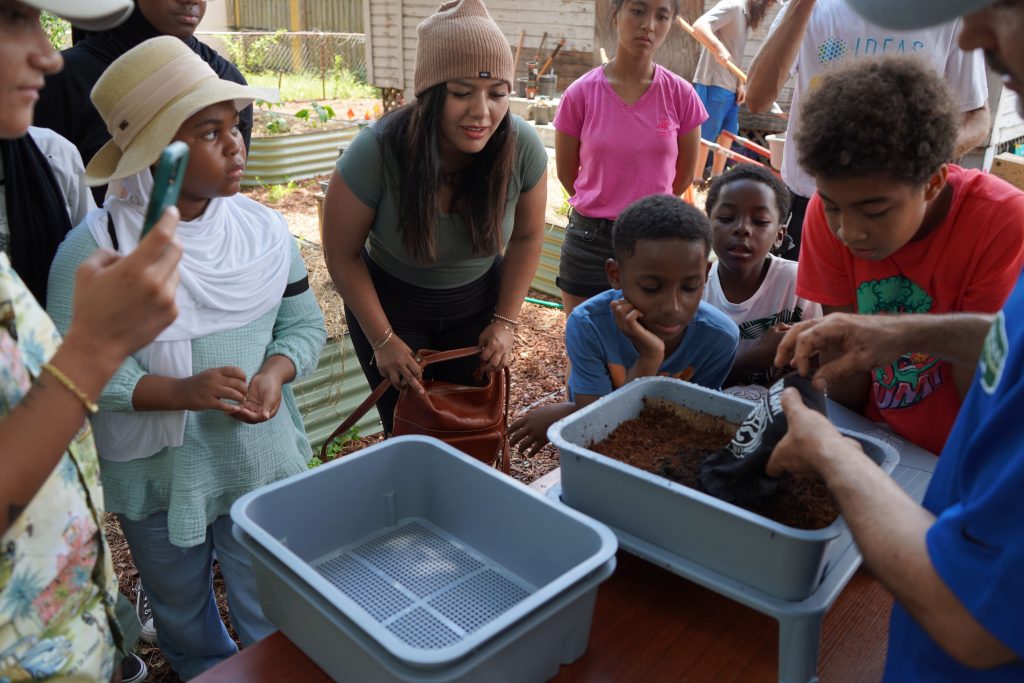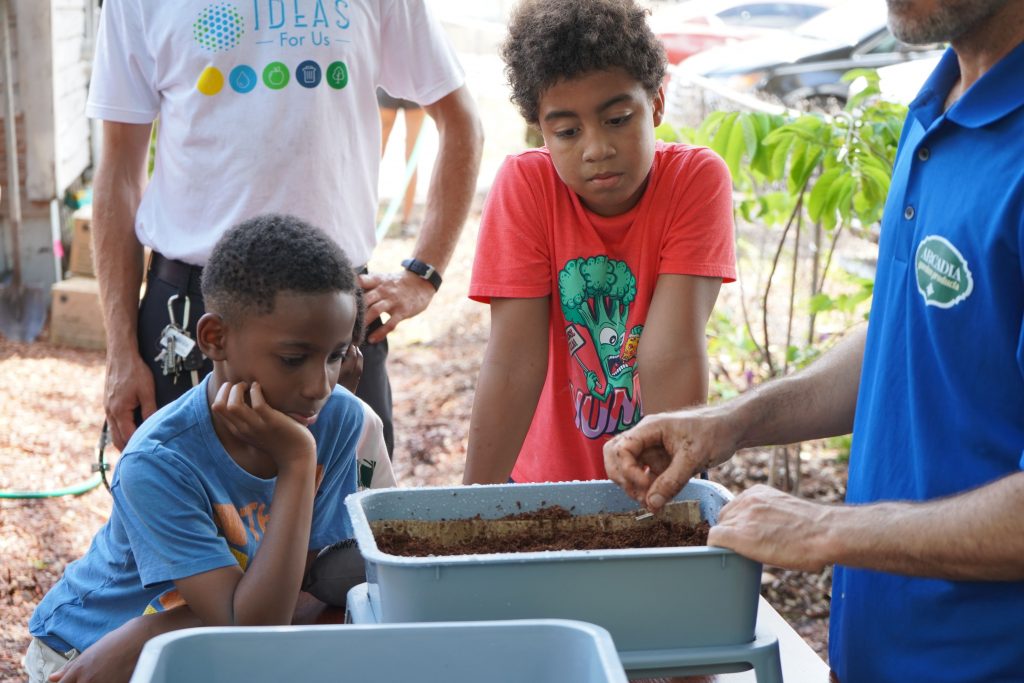Welcome, fellow gardening enthusiasts, to an exploration of a little-known hero in the world of regenerative gardening: the humble worm bin. Prepare to be amazed as we delve into the secrets of soil health and the vital role these wriggly creatures play in nurturing our gardens. So, if you’re ready to join the ranks of the Worm Nerds, let’s embark on this informative journey together!
Worms and regenerative gardening
Regenerative gardening is an approach that goes beyond sustainability, aiming to restore and revitalize ecosystems while providing abundant yields. At the core of this methodology lies the concept of soil health—the foundation upon which all plant life thrives. Enter the worm bin, a simple yet ingenious tool that harnesses the power of earthworms to transform organic waste into rich, nutrient-dense compost.
Earthworms are remarkable creatures. As they devour organic matter within the bin, they break it down into smaller particles, facilitating decomposition and the release of essential nutrients. This process, known as vermicomposting, not only reduces waste sent to landfills but also produces a nutrient-rich humus that can enhance soil structure, water-holding capacity, and nutrient availability—all essential elements for healthy plant growth.

Our staff member, Vern, relaxing after building a beautiful, edible landscape at local community hub, Knowledge for Living, in Parramore, FL.
Worm bin benefits
Now that we understand the significance of soil health and the worm bin’s role in achieving it, let’s explore the benefits in more detail. First and foremost, vermicompost is teeming with beneficial microorganisms that contribute to a thriving soil ecosystem. These microorganisms aid in the decomposition of organic matter, suppress harmful pathogens, and promote nutrient cycling. As a result, plants grown in vermicompost-enriched soil often exhibit increased resistance to pests and diseases.
Moreover, the humus produced by worm bins acts as a natural slow-release fertilizer, providing plants with a steady supply of nutrients over time. This not only reduces the need for synthetic fertilizers but also prevents nutrient leaching, which can be harmful to the environment. Additionally, the improved soil structure resulting from vermicompost application enhances root development and allows for better water infiltration, reducing the need for excessive irrigation.

Local Orlando worm expert, Worm Nerd, giving our volunteers a demo as he installs new worm bins in our garden.
Worm bin limitations
While the benefits of worm bins are undeniable, it is important to acknowledge some considerations and potential limitations. Maintaining optimal conditions within the bin, such as temperature and moisture levels, requires attention and regular monitoring. Additionally, certain types of organic waste, such as meat and dairy products, should be avoided to prevent odor issues and attract pests.
Furthermore, while vermicompost offers numerous advantages, it is not a cure-all solution for all gardening challenges. In some cases, specific nutrient deficiencies may require targeted fertilization, and certain plants may have distinct soil preferences. Therefore, integrating worm bins into a comprehensive soil management strategy, including soil testing and appropriate amendments, is crucial for maximizing their effectiveness.

Worms are mesmerizing creates. There’s so much to learn about how we can partner with them for planetary health!
The quest for soil health
In the quest for regenerative gardening and the pursuit of soil health, the worm bin emerges as a powerful ally. By harnessing the transformative abilities of earthworms, we can minimize waste, enrich our soil, and cultivate thriving gardens. So, embrace your inner Worm Nerd and consider incorporating a worm bin into your gardening routine. Your plants—and the environment—will thank you for it!
Remember, nature is a masterful teacher, and the humble worm bin provides us with valuable insights into the intricate workings of the soil ecosystem. Let’s unlock the secrets of soil health together and embark on a journey of sustainable, regenerative gardening practices.








